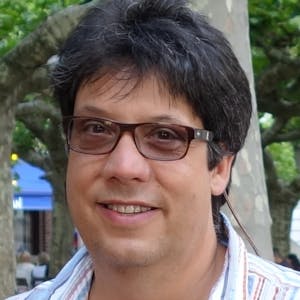Data management, user management, I have basically used all of these, push notifications, cloud code to write custom server-side code, and we will touch on this throughout this talk.
And that concludes a summary of Parse Server, the backend. Now to the database. All right, I am going to talk about the new 323AI Oracle Database Container. Yes, a Docker image for Oracle that is free. It is a full-featured database image. There is nothing missing here. To use it, you have to do a Docker run, and it will download the container and start it.
And then if you want to use it for JSON development, you have to run these commands to enable JSON support. To do this, you will have to download the SQL client to interact with the local container and then you will connect, see this command, connect to the image of sysdba. You are going to connect as the systemdba to a pluggable database called 3PDB1. You can see that in the SQL command. Once you log in, you will run these commands, or you can run them as a script. Just pipe them into SQL and that will set up the local Docker container for JSON development.
But what is a pluggable database? So Oracle has this idea or concept of a container database. And 323AI is a container database, which means there may be many instances of a pluggable database, which could correlate to cloud native services or bounded context. So for each PDB inside a container database, you can define that. Here, let me try this again. In a microservices architecture, a pluggable database can be scoped to a services bounded context. For example, the supplier service, the customer service, and the order service. While at the container level, the sysdba, you can still manage all the PDBs as the same as far as patching, upgrade and backup. Another big plus is that a team can collect and report on metrics for all PDBs in a container database.
We saw the sysdba administrator that could run commands at the container DB level. But every PDB can get its own administrator that maintains the specific instance. For the default PDB, free PDB1, the default administrator is PDBadmin.
A little bit about the storage adapter that we built at Oracle for Parse Server. Right now, the Oracle storage adapter code is hosted in the Oracle Samples GitHub, and it is recommended to work with the latest release of Parse Server 7.0.0. I am working with the Parse team to release this adapter as a, quote, proper adapter. Currently, the other storage adapters, Mongo and Postgres are part of the server source base.































Comments